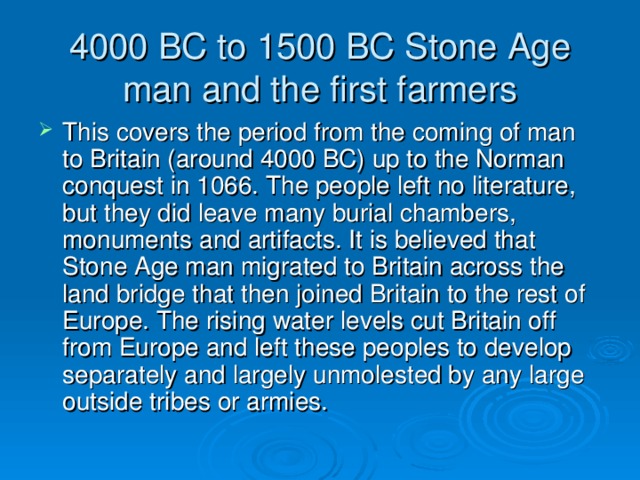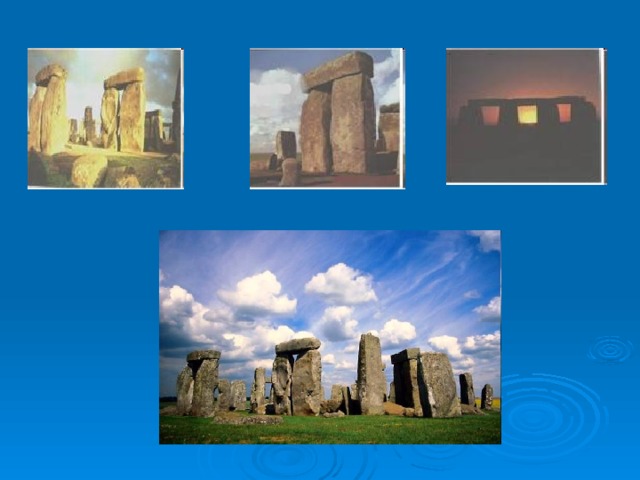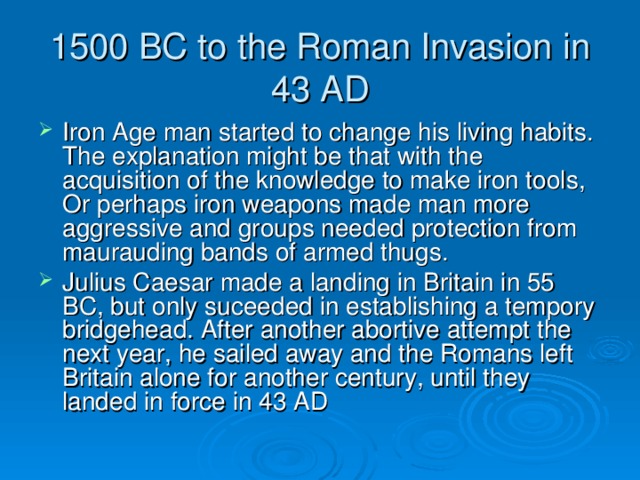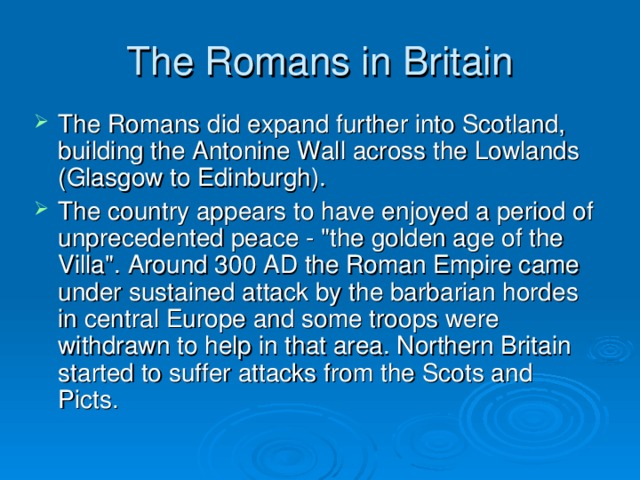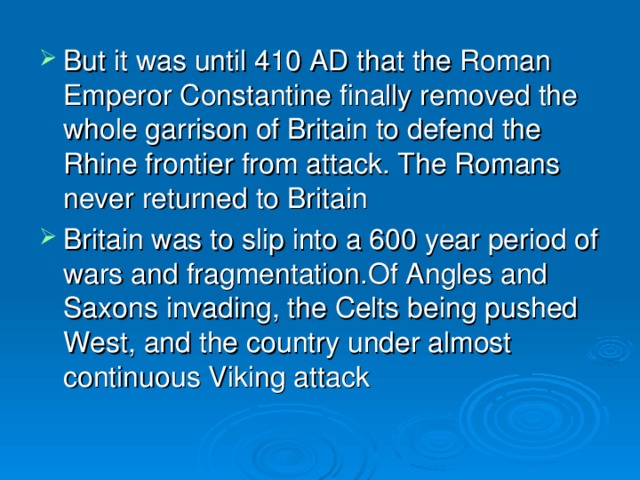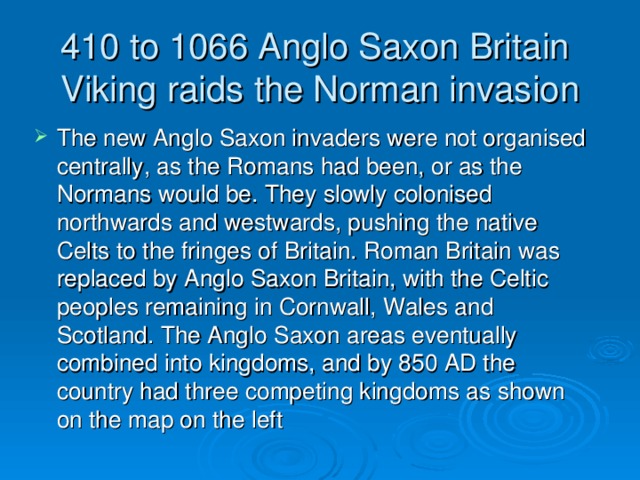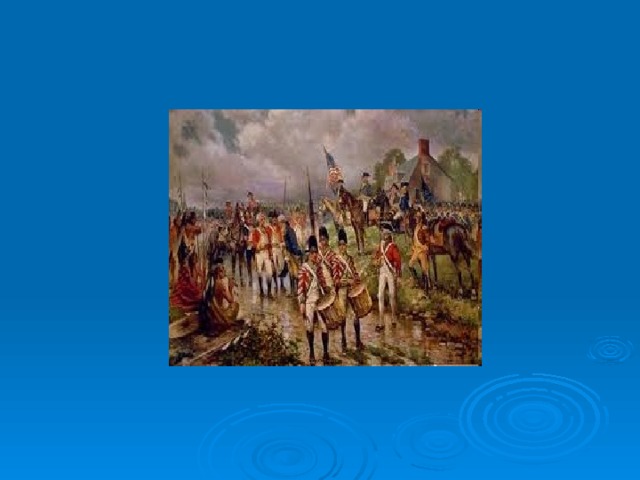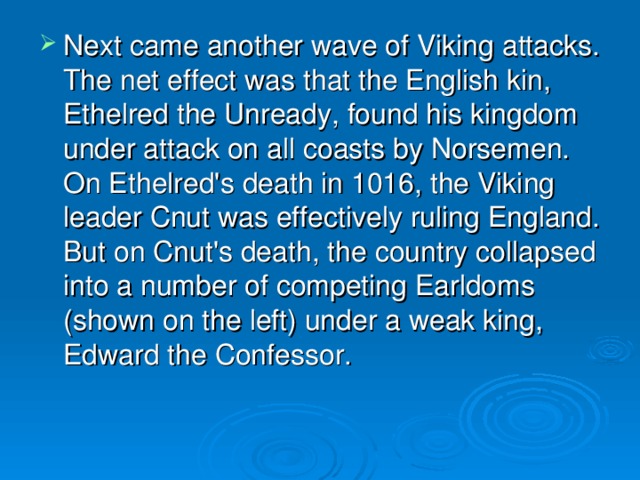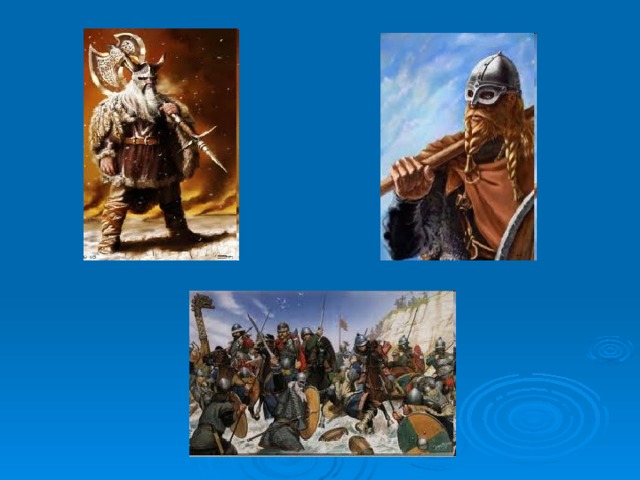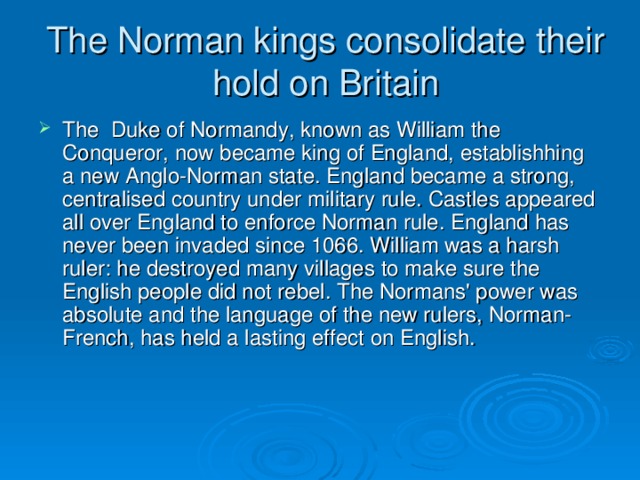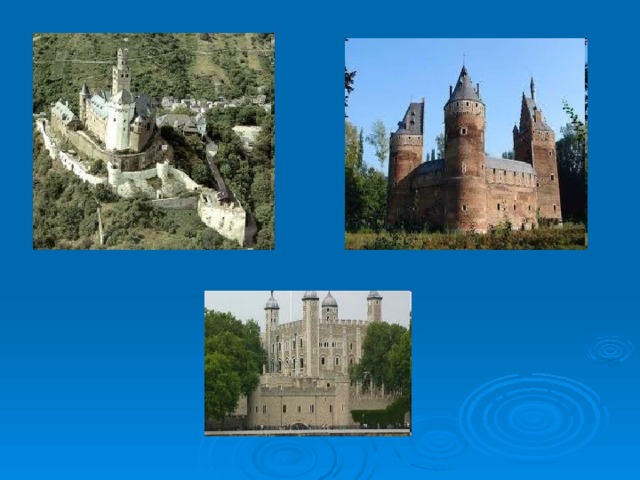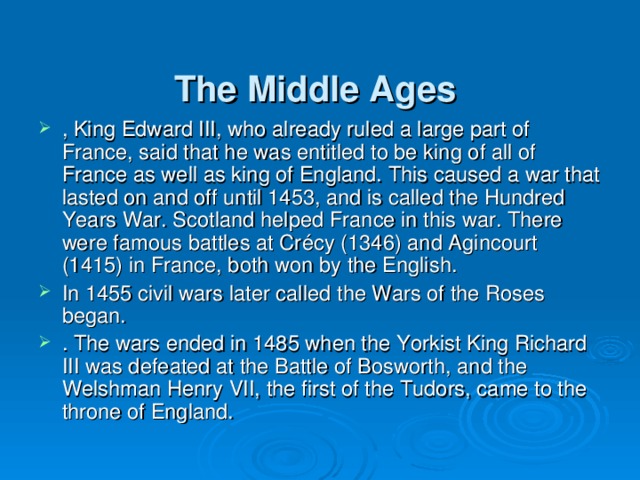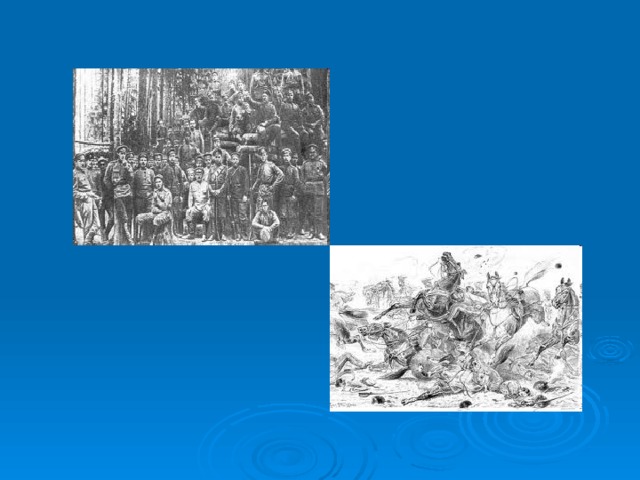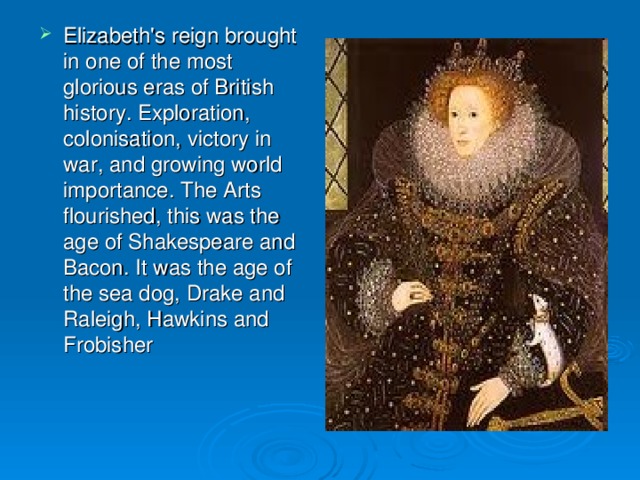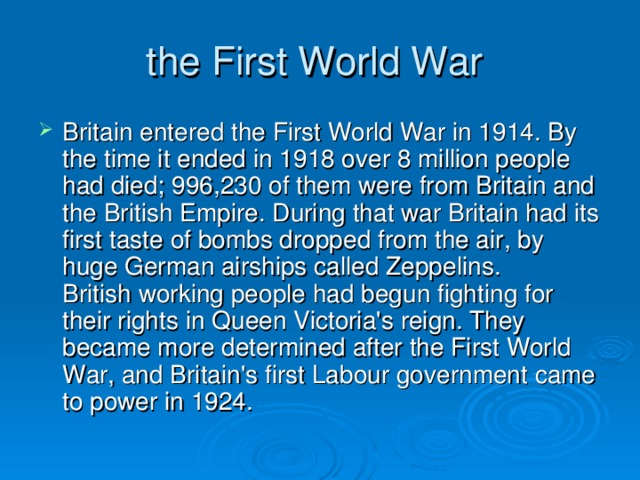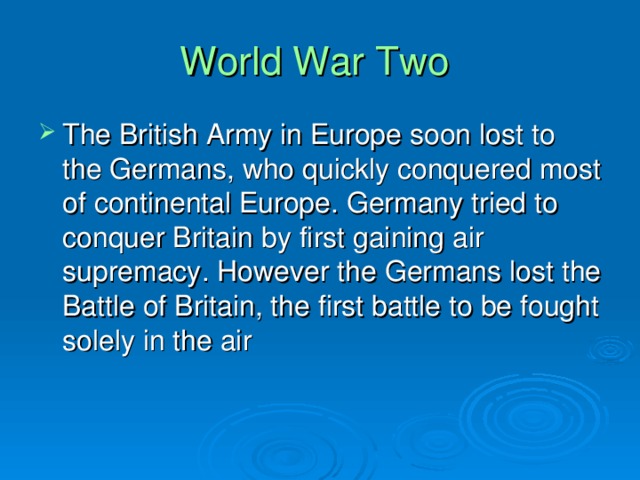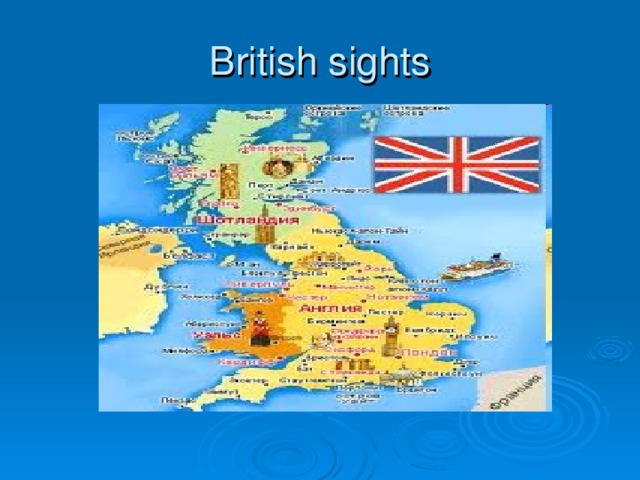презентация на английском языке на тему: Great Britain
PLAN:
1. 4000 BC to 1500 BC Stone Age man and the first farmers
2. 1500 BC to the Roman Invasion in 43 AD
3. The Romans in Britain
4. 410 to 1066 Anglo Saxon Britain Viking raids the Norman invasion
5. The Norman kings consolidate their hold on Britain
6. The Middle Ages
7. The Tudors
8. The Stuarts and the Civil War
9. the First World War
10. World War Two
4000 BC to 1500 BC Stone Age man and the first farmers
This covers the period from the coming of man to Britain (around 4000 BC) up to the Norman conquest in 1066. The people left no literature, but they did leave many burial chambers, monuments and artifacts. It is believed that Stone Age man migrated to Britain across the land bridge that then joined Britain to the rest of Europe. The rising water levels cut Britain off from Europe and left these peoples to develop separately and largely unmolested by any large outside tribes or armies.
Stone circles, Neolithic tombs and tools have been found all over the British Isles from the tip of Cornwall in the south to the very north of Scotland. Although stone age artifacts can be found all over Britain, the largest of their construction are found in Wiltshire in southern England.
stone Age man constructed Stonehenge from massive 50 ton blocks of stone. Some were transported along a 240 mile route from the Welsh mountains
One hypothesis for Stonehenge's being there, is that it was a giant astronomical observatory. The sun on midsummer's day rises above the heel stone on the horizon, and other lies concerning the sun and moon and their movements can be found. Others believe that it was a druid's temple, or shrine.
1500 BC to the Roman Invasion in 43 AD
For some unexplained reason, Iron Age man started to change his living habits. They stopped building burial mounds and stone circles, stopped using the ancient sites like Stonehenge. Instead the Iron Age peoples took to farming in permanent fields and to living in protected hill forts.
The explanation might be that with the acquisition of the knowledge to make iron tools, then farming and tilling land became a viable proposition. Or perhaps iron weapons made man more aggressive and groups needed protection from maurauding bands of armed thugs.
Julius Caesar made a landing in Britain in 55 BC, but only suceeded in establishing a tempory bridgehead. After another abortive attempt the next year, he sailed away and the Romans left Britain alone for another century, until they landed in force in 43 AD
By the eve of the Roman invasion, Britain was a series of small kingdoms, perhaps 20 of these large enough to have a regional influence, but with no one kingdom holding any real control over any large area of the country

